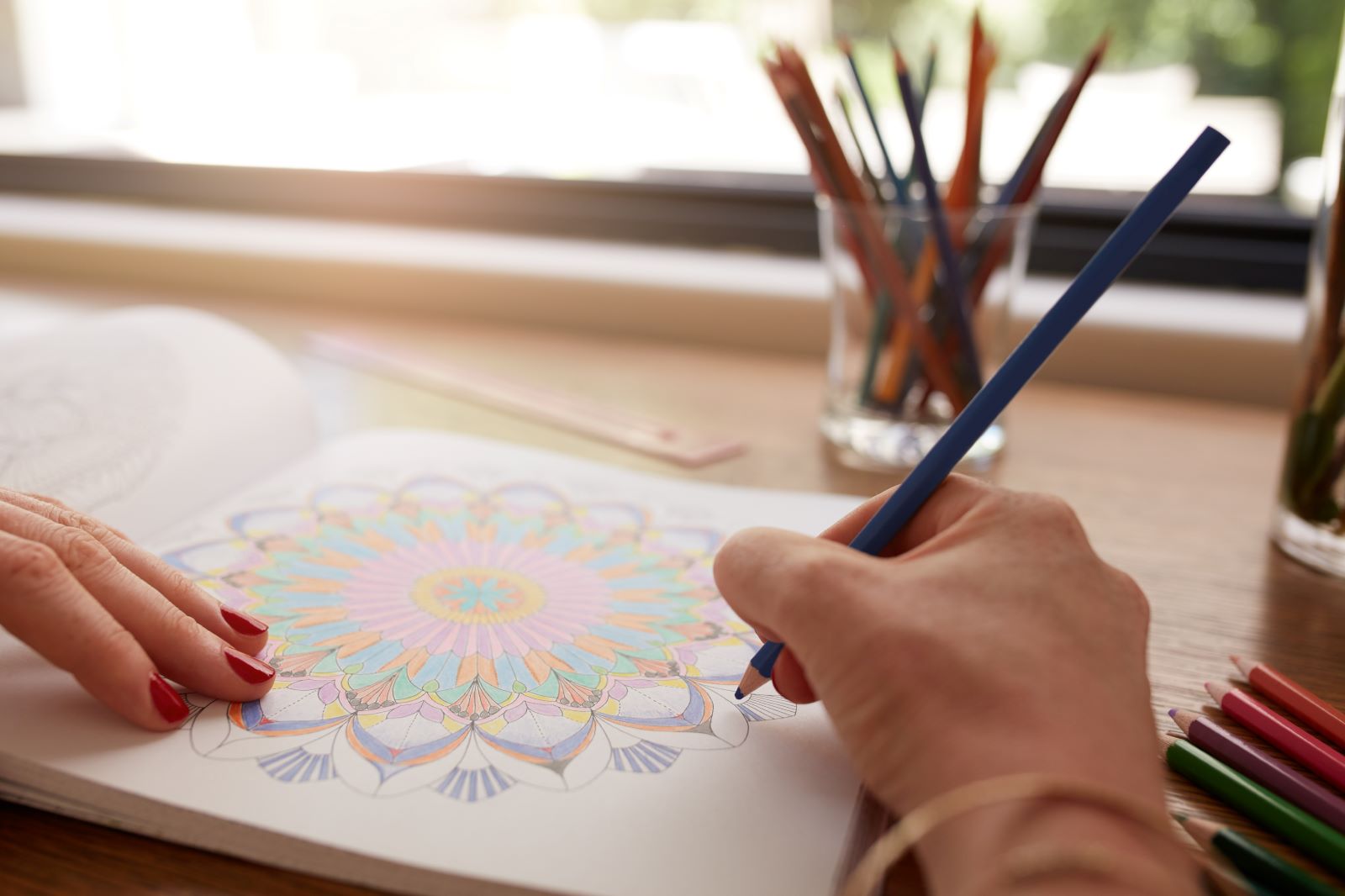<< Back
Diverse Types of Therapies Help Patients Heal

February 20, 2024
Sometimes on the path to healing, you’ve just got to relax.
That’s where Hartford HealthCare’s wide array of creative, recreational and occupational therapists come in. These Behavioral Health Network professionals run inpatient groups at the Institute of Living in Hartford and at St. Vincent’s Medical Center Behavioral Health Inpatient Services in Westport.
The groups are part of every patient’s treatment, in addition to traditional group therapy, individual counseling, medication and more. They help reconnect patients with the opportunity to relax and refresh themselves while at the same time rebuilding skills like problem-solving, coping and processing. These groups’ activities are fundamental to stabilization and a return to community living for the patients.
Amber Mayo, CTRS, is the manager of recreational therapy at the IOL. The eight recreational therapists on staff run groups for all wards, including adult, geriatric, children and adolescents.
“Often these patients don’t have hobbies or any way to fill their free time in a healthy way,” Mayo says. “This can contribute to depression, sleep issues and isolating. An important part of many of these groups is to help them recognize what can happen when they are bored: they might resort to unhealthy habits, such as using substances or isolating. We provide leisure education and teach them leisure skills. We want them to find healthy, fun ways to enjoy their free time and help them connect with their families and friends in a meaningful way.”
Liz McGuire, MS, LCAT, is supervisor of the Westport facility’s department of rehabilitation services. She oversees programming for the 76-bed inpatient treatment center. Lauren Firimonte, CTRS, is a senior rehabilitation therapist in the children/adolescent unit.
“We provide humanistic care,” McGuire explains. “We meet the patients where they are at. These groups provide opportunities for meaningful interactions.”
For children, arriving at an inpatient mental health facility can be terrifying, at a time when everything else in their life also feels out of control, Firimonte says. “Feeling safe with us is important. Our therapeutic groups put patients at ease. Other staff may only see play, where there is therapeutic purpose.”
These diverse types of therapy work on coping, communication, wellness and leisure skills. Mayo says therapists have games like “Coping Skills Jeopardy,” and art projects designed to encourage introspection on feelings like self-esteem and hope.
“Everything is designed to help them make connections,” she says. “That’s one of the highlights of the job, when you see someone have that epiphany, that “aha!” moment. One size of therapy doesn’t fit all. Some people like to talk. Others don’t. Finding ways to express yourself is what’s important.”
St. Vincent’s is a short-term facility, meaning patients stay an average of seven to 14 days. When it’s time for discharge, “we encourage people to continue to support their recovery after they leave,” Firimonte says. “We talk about resources in the community.”
At the start of their stay in the IOL, Mayo says many patients say, “Nothing brings me joy. We help them find that joy again. They say, ‘I feel like me again’.”